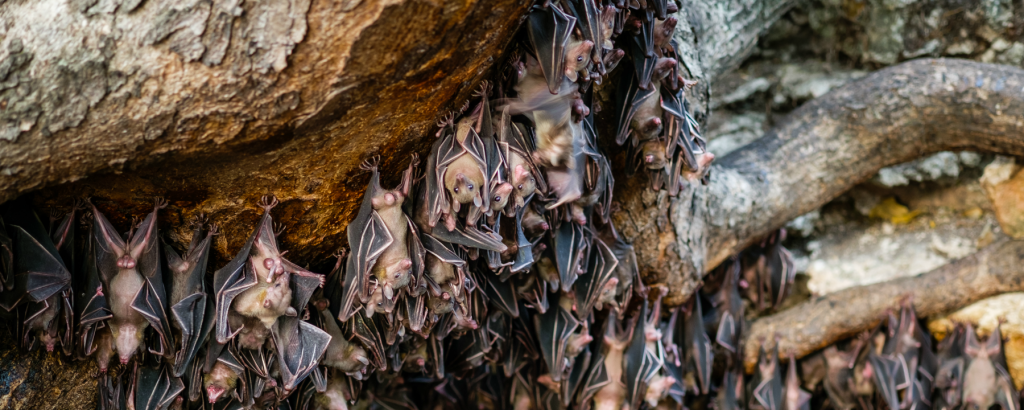For the first time, scientists have detected Marburg virus in bats in West Africa. Earlier this month (December 20), they reported that five Egyptian rousette fruit bats (Rousettus aegyptiacus) sampled from three locations in Sierra Leone tested positive for the virus. No humans have been infected there, but the discovery is a warning for the community that the virus, an Ebola relative that is also highly deadly to humans, is present.
“We have known for a long time that rousette bats, which carry Marburg virus in other parts of Africa, also live in West Africa. So it’s not surprising that we’d find the virus in bats there,” Jonathan Towner, an ecologist who led a team from the US Centers for Disease Control and Prevention (CDC), says in a press release.
The discovery was part of surveillance programs by the CDC and PREDICT-USAID, led by the University of California, Davis (UCD), that began sampling bats in Sierra Leone following an outbreak of Ebola in West Africa in 2016. Genetic sequencing of the Marburg virus found in four of the bats uncovered considerable diversity, indicating that the virus has been present in Sierra Leone for years.
The last human outbreak of Marburg was in 2017 in Uganda. According to the CDC, the biggest outbreak was in 2005 in Angola, in which 90 percent of the 252 people infected died. Two of the viral strains from the Sierra Leone bats are similar to the Angolan strain.
“That the discovery was made in bats before the recognition of any known human illnesses or deaths is exactly what PREDICT’s One Health approach to disease surveillance and capacity building are designed to do,” says Brian Bird of UCD who is global lead for Sierra Leone and multi-country Ebola operations for PREDICT-USAID, in the press release.







